Surviving Depression in a Depressing World- Part 1
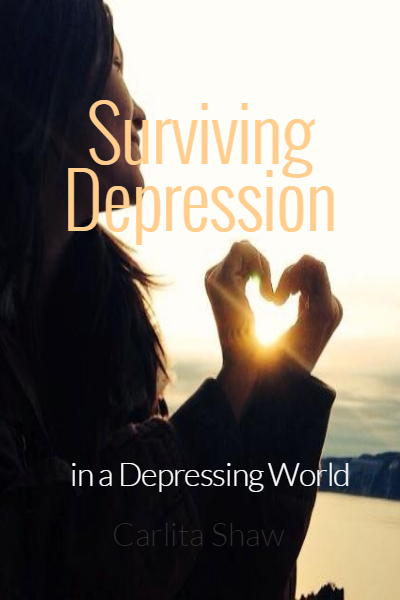
Our Lost Connection with Nature. Ecology, Depression and My Story
A different perspective on environmental factors influencing depression is something that interests me as an ecologist and to find insight into a number of different ways to treat depression with a more holistic approach, pills aside. Based on research over the last twenty years, depression is actually a multi-faceted number of problems associated with the environment, diet, immune system activation, autoimmune disease and electromagnetic interferences. Currently, I am exploring the bigger picture and possibilities of why we live in a time of global depression from a deep ecology perspective, a unique angle that is rarely considered, yet is vital if human consciousness is to change and transcend the current destructive paradigm that globalization is driven by.
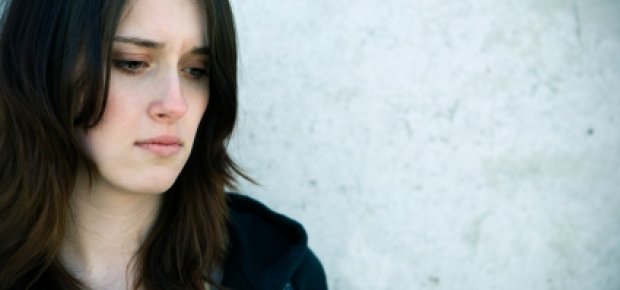
Image via freestock photos
Depression is not just a result of mental or physical illness, personal issues and brain chemical imbalances, it should be considered as a result of other root causes, or a by-product of the large amount of environmental pollution and electromagnetic overstimulation, which we need to take seriously as we live in a rapidly growing number of Electromagnetic and RF waves causing us geopathic stress , as a result of our dependence on hand held communication devices and computers.
We take a deeper look at the Western lifestyle and cultural values, which would benefit from a more ecological and holistic shift in our values to improve our internal body ecology and internal mind ecology.
In addition to advice on how to manage your own depression, so that you can help prepare yourself for a more holistic approach to living better with depression, to have a grasp of what direction you want to take, so that it becomes something you survive and overcome and to help you build the tools to manage the times you feel worse, when you make life style choices related to your diet and general health care, you do see improvements and stop feeling like a victim of depression and more self-empowered to control bouts of depression. You can design your own management programme and chosen forms of therapy, if talk therapy is for you or try other activities that best suit your needs in the ebbs and flows that daily life brings.
Addressing your entire lifestyle choices includes your diet as a way to help you feel better. The human gut is where the basis of our immunity starts, the immune system has been acknowledged by scientists as a major contributing factor to inflammatory disease including depression as explained in my new book ''Surviving Depression in a Depressing World'', so if you really want to make a commitment to improving how you feel, strengthening your immune system by changing your diet will greatly aid managing depression, visit a nutritionist and get a food allergy test, avoid wheat, dairy and gluten.
My Story
''What doesn´t kill you, makes you a privileged story teller''
I have survived manic depression since I was very young, my earliest memories of depressive phases started at school when I was dealing with being bullied because other children saw me as different from them. I was a very sensitive and shy child and didn’t feel I could easily connect with other children, I preferred being around adults and I would spend a lot of time in the school library in break times. I had some unusual experiences as a teenager with reoccurring large benign tumours regrowing in different parts of my body, which made me a medical anomaly.
I had to endure some challenging operations from the age of 14 years old onwards due to this, during my first operation I also had an outer body experience, which led me to explore the multidimensional and spiritual realms.
A few of the operations I have had to remove tumours, put me in a kind of physical and emotional stasis of isolated healing over periods of a year, each time I recovered from a surgical procedure. Several years were like this, where I felt isolated in my condition and had to endure things most people don’t have to deal with.
One time in my twenties, I had a golf ball sized tumour removed from my nasal cavity and the back of my throat where I had eighteen stitches and part of my jaw was involved too so it was cut away. The surgical procedure was very complicated, so I had to go on a liquid food diet for a year, because after the operation I couldn’t open my jaw wide enough to eat solid foods. I suppose it has made me very resilient in some ways. The reoccurring tumours are why I took an interest in training in energy work such as Qigong and Reiki, after hearing about the Chinese Qigong hospitals that cured cancer and I developed an interest in Consciousness as well as energy work, which led me to practice meditation from the age of 14 onwards.
I experimented in dietary changes as well as Reiki, Qigong, Tai Chi and Hypnotherapy for self-healing. I explored energy healing and using Hypnotherapy as a way to seek some control over my extreme states of mind and emotions, without actually knowing I was a manic depressive sufferer at the time. I was finding my own way dealing with the affliction through some most holistic approaches as aiding my medical anomaly condition with reoccurring benign tumours. Not to say, that I didn´t avoid alcohol and soft drugs at times along the way in my youth, I did go through phases of self-medicating as a temporary solace, but soon learned that this was not the way to deal with my lowest moods.
People who suffer from depression tend to gravitate to alcohol or drug dependence and some will need help and support breaking addictions, I was fortunate not to really get seriously addicted to any unhealthy substances.
I was quite an introvert until my mid-twenties and became more outgoing in later life. In my thirties and forties, I spent the last eleven years working on environmental projects in Central and South America.
I’ve survived malaria, septicaemia, loss of an NGO that I created and trusted a group of close friends with to become fellow directors, but whom eventually took the organization away from me. This damaged me on many levels financially and professionally as I could not get a references to state I was the founding director since they denied that I had founded the organization. I hear this can be a common occurrence to people who are the founders of non- government organizations, where the group of people they put together mutineer against the founder, as they have a different vision of how they want to steer the organization from the founding director. It really damaged my levels of trust in people.
My view in the coastal forest
Two years ago, I spent an entire year in voluntary solitude, living in a simple house in the tropical rain forest of Ecuador. I was recovering from another major operation after some large tumours were removed. At the time I didn’t have the support of family or close friends around me, so during my recovery period I faced some of my inner darkest times.
Like many, I’ve been through a rough divorce. I have grieved the loss of friends who have died. I had a hysterectomy at forty years old, where tumours the size of a rugyball was cut from my body and I have no children. I’ve survived serious destitution with the love and support at times from the most surprising sources. Grief is experienced at all levels, but
grieving the loss of a pet seems to be a taboo that most are afraid to discuss in open, but the loss of my dearest best companion, my ten year old dog Poppy last year really affected me and sent me into dispair.
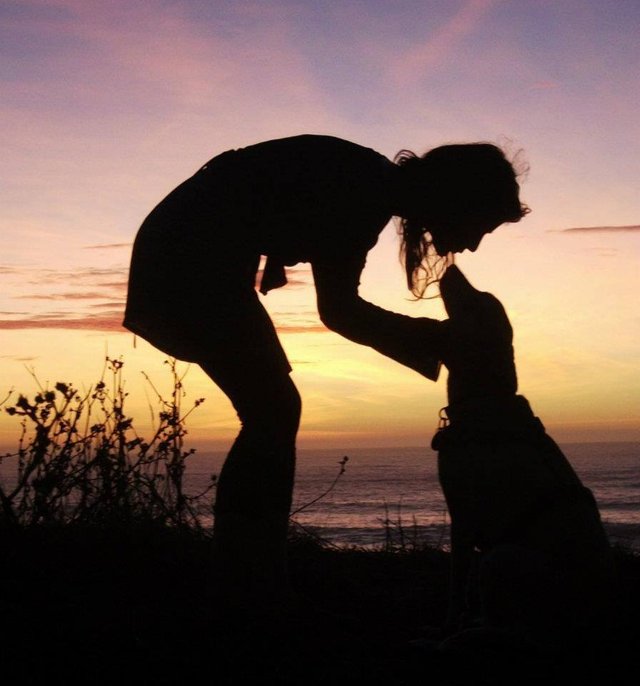 Poppy and me
Poppy and me
In 2006, I found Poppy in Guatemala, or she found me and gave me a reason to pull through my darkest days. She was my Labrador mix rescue dog, we travelled the world together and her unconditional love gave me a reason to live and she was the source of so much joy for the last 10 years. I’d recommend a rescue dog to anyone who is living with depression, dogs are bundles of joy and fun that get you out of your head, out of the house, talking to people and into nature and a state of being in the moment, dogs work far better than Prozac and are much healthier for you too.
More recently, I had to flee a Latin American country I was living in after my partner was kidnapped and tortured and I was in danger. Despite life’s challenges, I don’t consider myself a victim of life, as I know I have been very fortunate compared to many other people who have been through far worse loss and hardship than myself. I just want to share my story to illustrate some of the background to my own adversities, so the reader understands that although I am not a doctor or psychologist, I have had my own experiences, trials and tribulations. I have learned to deal with extreme circumstances and great losses alone for most of my life. I have been independent and preferred being alone to being with just anyone for most of my adult life. Until recently, I finally met someone, I have had the fortune of finding a wonderful partner when I just turned forty two years, after I had given up on such possibilities and have become a very independent person, so much so, I felt I didn’t need anyone. Though, it has been a bonus and is good to have someone else to provide some support and to share the companionship of someone who effortlessly gets me on so many levels.
However, I still have my ups and downs like anyone else, though the difference is things are far better than before, as I have learned through trials and errors, just how to manage my depression. Before I was a victim of depression, not a victim of life, but now I have the confidence that it is something I can control through diet and various alternative therapies and lifestyle choices.
Going through my boxes of memories recently, I came across some old notebooks, which I had written a few notes, twenty years ago-
´´I breath, but what is this sadness that wants to stop me? Who speaks these words with my mouth? What is this place? Where do I go from this place that I know is only a dream that I can never awake from unless I leave this world?´´
´´Where does this pain come from? A bottomless place it seems? Can I truly heal? I feel at such peace some days and then complete unrest others, I am so weary with this, inconsistency of healing then backtracking, healing then undoing this healing. What destruction is this? Will it ever change?’’
These notes express the kinds of states that a manic depressive goes through especially when one is in their youth and learning that the world is not what they thought it was when they were younger. Teenagers and young people are expected to be carefree and normally functioning while they may feel a lot of pressure and demand as to what choices they make in modern society where things are highly competitive and society places unhealthy values on things that really shouldn’t be a measure of who we really are as human beings. But more and more young people are diagnosed with depression today than ever before, those are the ages we are exploring our sense of self and subconsciously figuring out the world in relation to ourselves;
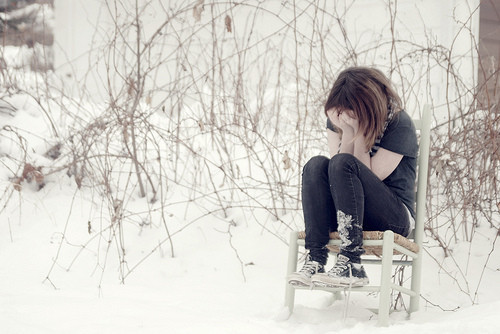
The message we get from society is, that as soon as we start out, we are worthless unless proven otherwise via raising our academic credentials to prove our intelligence or changing our professional status to one that society puts value on, or by being more beautiful or successful. When we are children we are in a state of pure being, then as soon as we grow into self-awareness when we are teenagers, we are taught that we have absolutely no value in just being, we need to fulfil the shallow social values dictated to us through societies esteemed archetypes. Some of us may feel we don’t fit in, and that something isn’t right with the world, yet we are asked to conform to what everyone else accepts as normal. This can be overwhelmingly isolating for a teenager and young adult and send them into depths of despair.
I think this is partly why I chose conservation biology and environmental science as a career over art, when I was a young adult, because in some way I felt it gave me more of a purpose in a world that I felt was full of self-centred, uncaring folk. I wanted to validate myself with a greater mission. Unfortunately, I was naïve about the world and it wasn’t the best profession to choose as the modern political climate is now ruled by the corporate world, which is more powerful than twenty years ago and therefore corporations are globally making even more of a mess of the environment today than before and environmental laws are far more eroded, environmental biologists are helpless to remedy the situation.
As a result, environmental conservation work has dwindled and is usually one of the lowest paid salaries in the field of science. Therefore, I learned all of this the hard way and it detrimentally affected my health and emotional well- being even more after twenty years working in the field. I often wonder if I had stuck to a career in art, I may have not had to deal with such hardship and sacrifice. Knowing what I know now as an environmental biologist, about the current state of the planet and species, it is like having worked as a doctor with hundreds of ill patients that the doctor cannot ever help, failing each one of his patients. Without finding a long term solution for the level of environmental destruction that is unfolding, it gets to you and wears you down and certainly isn’t good for a person who has lived with depression since they were young. However, what it has done, has shown me the value of my unique perception on environmental influences on depression from an ecological perspective.
I realize that the environmental problem is merely a reflection of the human problem. Our inner mental health is not alright, what people accept as normal, shouldn’t be accepted as normal. The values of western culture and society emphasizes that fulfilment can only be gained in material things and in our achievements, in improving our status and professional careers. These false values create unrealistic pressures and demands of people, which can be very stressful and rob people of quality time with friends or family, this is wrong, we are not robots, we are human beings, yet society is always trying to take away our humanity and turn us into automatons.
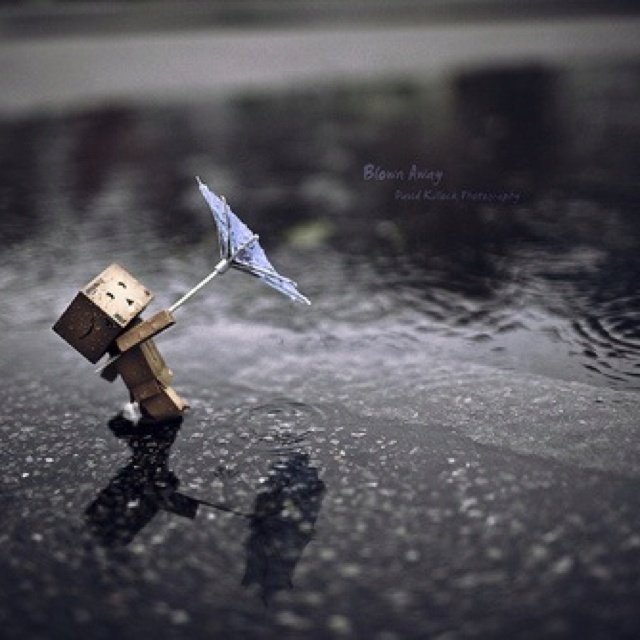
robot in the rain, by David Killock. Image from pininterest
Depression is now a serious global problem, the World Health Organization state that depression is the biggest health burden next to Cancer and Heart Disease. Over one million people die by suicide, worldwide each year. These statistics are shocking and indicate that we need to create healthier value systems in our personal lives and in society as a whole.
We have a lot of inner work to do, we need to shift our values in the Western world to more holistic values that respect our humanity, respect nature and our inner spiritual fulfilment, with our connection with the Earth. Healthier values that are an intrinsic part of the fabric of our consciousness.
What we do to Earth and our fellow species, we do to ourselves. Many of us are very disconnected from nature and it actually is damaging to our inner self-worth if we do not have access to nature or if our local communities do not have access to nature.
While we are amid an unfolding environmental crisis, the rapid loss of species, the injustices, deteriorating global economy and war, many people are so disconnected and do not see there is something very wrong with the way things are, many people are probably living in a state of denial or have been desensitised by a culture that sees war, environmental destruction, poverty, violence and injustices as part of a normal world; this is more mentally disturbing than those individuals that have compassion and empathy who have a healthier vision of humanity but are overwhelmed by the negativity and depressed as a result.
People who feel this way, are told they are mentally ill or abnormally functioning to what is already a sick world? Yet to be depressed, sad and overwhelmed at the current state of things in the world means we have a heart and care about others, it means we are all connected to one another’s suffering and the plight of Planet Earth.
"It is no measure of health to be well adjusted to a profoundly sick society." - Jiddu Krishnamurti
Depression is manifesting as a collective symptom in the noosphere of human consciousness. As we process our recognition that something is fundamentally wrong, such as with any disease, or illness, we look for the root causes and apply ourselves in ways we can personally heal, we also contribute to becoming part of the solution. When we heal ourselves we can help others and put ourselves to some purpose and function by focusing on our local community and environmental needs.
It has taken my entire life until the age of 42 for me to recognise that I have manic depression, it’s not something I will be entirely free of, because I am just not the kind of person that stops caring about the state of the planet and humanity, but at least I can survive the worst aspects of it and create a peaceful space to retreat to when I need to.
What helps facilitate this is I have learned to better manage now through dietary changes, herbs and supplements. I know what I am dealing with and the bottomless pit of pain and despair isn’t there anymore, not like it was when I was in my early twenties. Not to say I don't still go through severe lows, I still have challenging times because that is the nature of life. Everyone has challenges to deal with. Despite all the adversities, I am glad I have managed this my entire life without becoming dependant on pills such as antidepressants or becoming a pharmocology victim or worse, however, I think this is partly because I have grown up in England, a culture that doesn’t push pills on depressed people unlike those that grow up in the USA. I am not condemning medication for depression, as it is very helpful to many people, it just shouldn't be seen as a solution to the problem, nor is it the only form of treatment or therapy in the long term of managing depression. I have always stood by the holistic approach, but this does not mean it has not been painful, challenging and darn right tough and punishing path at times, but with perseverance, a good support network and the kindness and understanding of friends, somehow I have come out on top of it all and have a firm hold of the reigns.
Readers should research the long term effects of different medications as some can make an individual feel worse than others and if you are coming off of pills, it’s best to do so gradually through the supervised titration of the medications with the help of a psychiatrist. Take steps to start introducing some lifestyle changes as which I will be posting about in following articles.
Related articles
environmental factors influencing depression
A different Perspective on Depression and The Ecology of Human Consciousness